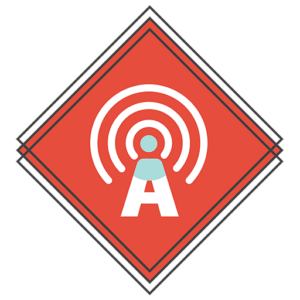
The Rotterdam School of Management (RSM) is part of Erasmus University Rotterdam in the Netherlands. It is one of Europe’s leading business schools, known for its innovative research and teaching approach. RSM offers a variety of programs including undergraduate, MBA, executive education, and PhD courses. The school emphasizes a global perspective, sustainability, and a strong connection to the business community, making it a hub for aspiring business leaders and entrepreneurs. Considering these credentials, it was an absolute honor that they chose to run a pilot of Attendance Radar, to track student attendance during the second-half of the academic year 2023-2024.
Why did RSM choose to use Attendance Radar?
Attendance Radar was chosen because it offered an easy, fast and reliable way of tracking student attendance, which had been an issue at RSM for several years now. While tracking attendance in smaller classes was doable using other traditional methods like role-call or passing a paper around, in larger classes this was too time consuming/error-prone. Even in smaller classes these were error-prone, causing administrative headaches, especially when mandatory attendance policies were introduced.
This hindered backing up with data RSM’s proposition that coming to class improves student performance. Moreover, student attendance rates had experienced a significant drop since COVID-19, meaning that RSM needed all the help they could get to help improve attendance rates, for which good attendance tracking capabilities was essential.

Some key statistics of the pilot
7
2
700+
4000+
Mix of
What was learned during the pilot?
More than anything else, this pilot was a great learning experience for both Codific and RSM, not only about ways to better improve/use the app but also about student attendance in general and attendance policies. The key technical and non-technical lessons of the pilot included:
- During setup clear communication with trainers and students is imperative. This helps in heavily reducing the amount of support work necessary, from both Codific and the organization, in this case, RSM.
- Single sign-on (SSO) integrations are heavily recommended. During the pilot we learned that SSO integrations helped in a variety of ways:
- No need to set up passwords, as you are using your university login.
- Email aliases no longer present a problem.
- Easier to deal with support requests as RSM would not need to coordinate with Codific as much given that most support can be handled internally.
- A solid way of tracking attendance is imperative to impose attendance policies and can help to shape them.
- The app is most valuable and most in a specific scenario: when classes have many students and are mandatory.
Within the context of Student Attendance tracking pilot project, our need to individuate a handy and friendly tool to register the participation of students in classroom, led us to choose Attendance Radar. We have experienced an attitude from Codific that is very supporting, personal and professional at the same time. The flexibility shown by Codific makes us very happy.
Moreover, the graphical design of the app interface is very simple and intuitive. Both students and teachers quickly became familiar with using the app.
Apart from the issues already mentioned regarding the SSO, the use of the app by the students during the pilot project was definitely a success, and their feedback on recording their attendance in the classroom was very positive. The opportunity to test Attendance Radar in classrooms of different sizes and with varying numbers of students allowed us to appreciate its potential. We found all the features related to reporting to be particularly valuable. The ease with which it was possible to produce weekly reports of the students’ attendance greatly helped us in the subsequent analysis of the data at the end of the pilot period“

Coen Fierst van Wijnandsbergen, IT Consultant @ RSM

Alfredo Trovato, Lead Education Coordinator @ RSM
Overall, the pilot in RSM was a great success and amazing learning experience for both us and the faculty. Several improvements have been made to Attendance Radar due to it, making the app more user-friendly for both trainers and students. We are continuing to work closely with RSM and they will continue to use the app in the upcoming academic year, aiming to achieve a wider implementation of the system in the faculty soon.
We are currently looking for institutions that are interested in running a pilot of the University Version of Attendance Radar, do you think your organization would be a good fit?



